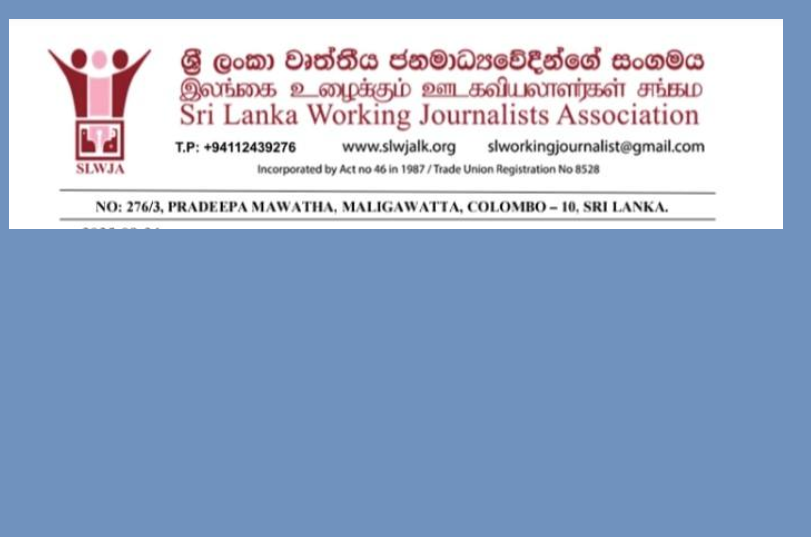The Sri Lanka Professional Journalists Association (SLPJA) has announced its decision to boycott a scheduled discussion on September 1, expressing strong opposition to the national media policy currently being drafted by the government.
This decision was formally communicated in a letter addressed to the Secretary of the Ministry of Media.
In the letter, the association condemns the government’s attempt to base the new media policy on a controversial draft originally prepared under the previous administration. They allege that the draft was authored by a group of scholars loyal to former President Ranil Wickremesinghe and funded by a non-governmental organization.
The letter further recalls a meeting held on May 14, 2025, with the Minister of Mass Media, Nalinda Jayatissa, during which it was agreed to discard the earlier draft and collaboratively develop a new one with input from all media organizations. The association expresses deep dissatisfaction with the current government’s decision to proceed with the previous administration’s approach, disregarding that agreement.
While acknowledging the importance of a national media policy, the SLPJA insists that it must be developed through transparent, inclusive, and meaningful dialogue with all stakeholders—not based on the interests of external organizations. They argue that the current draft lacks transparency, fails to address the real challenges facing the media sector, and does not offer comprehensive solutions.
The association emphasizes that if the government genuinely seeks to strengthen the media landscape and prevent biased reporting that misleads the public, it must reinforce the country’s existing independent and democratic institutions for media education and development. They call for a media policy that reflects a broad consensus and protects press freedom, rather than one shaped by government interference.
